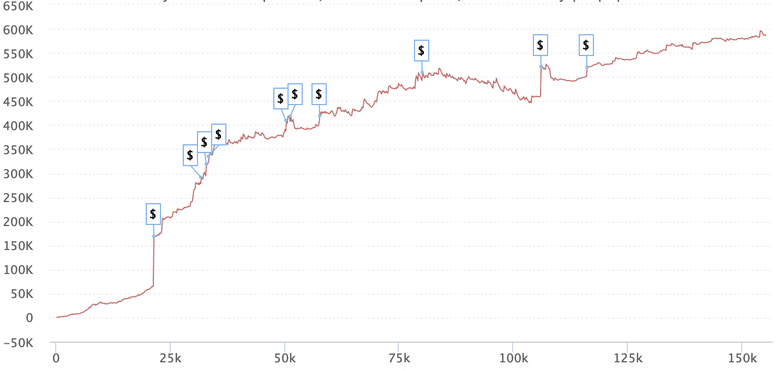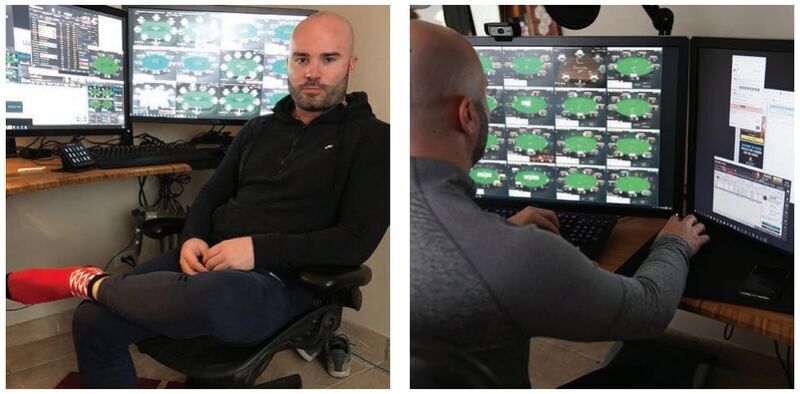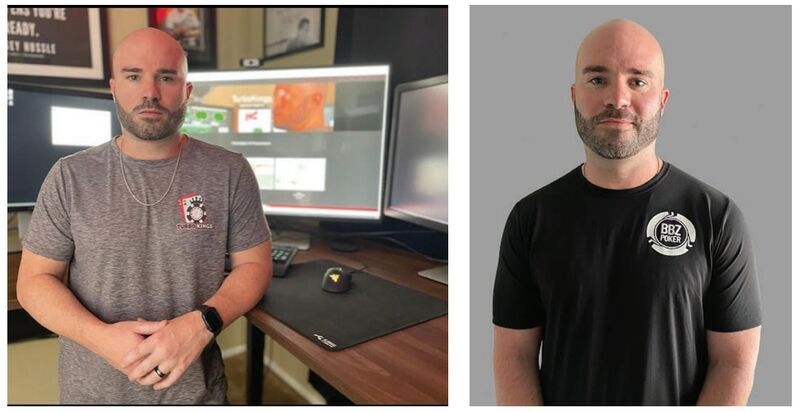Brian is a professional poker player and coach and has been successfully grinding mid to low-stakes for many years. The total career profit exceeds $2 million, and this is with an average buy-in of less than $40.

– Is Nash equilibrium and GTO the same thing?
– Not really, but they are related concepts. In poker, they are indeed often confused and used as if they are synonymous. I will try to explain in simple terms. The Nash equilibrium is one of the concepts of game theory, in which the strategies of the players do not depend on the actions of each other and do not change in any way throughout the game. Such a game is called unexploitable or perfectly balanced. Imagine a poker match between perfect bots, they will just play “Nash” against themselves.
It is important to understand that such a game is possible only in theory, because all people, without exception, deviate from theory. Some do it on purpose, others don't know it. But, in any case, the game ceases to be "equilibrium", and due to this, some players get an additional advantage.
GTO is the optimal strategy against all possible counter-strategies. This is also part of game theory, but more complex. It already takes into account the ranges our opponent plays with. For example, if a very tight player is sitting in the blinds, the correct play in GTO is to open from the button more often.
I play a lot of low and mid-stakes and aim for GTO but not Nash Equilibrium. In short, all GTO strategies are Nash equilibria, but not all Nash equilibria are GTO.
– Which strategy is better – equilibrium or exploitation?
Every strategy has its advantages and disadvantages. Both can be more profitable at a particular time, it depends on several factors. The opponent's strategy will be decisive.
Strong players know how to combine Nash's play and exploits, and most often this combination is the most effective. That is, in some situations they use the weaknesses of their opponents, while in others they play in a balanced way so that they themselves cannot be exploited.

– Many players seriously overestimate their abilities at the poker table. Is there a way to objectively evaluate your skill?
– Nothing better than a win rate has been invented yet. The most commonly used indicator is EVbb/100. This is our expectation in the blinds for every 100 hands. At a distance, this indicator gives a clear picture of your game, no matter how you run.
In tournaments, the stage is very influential, as the blinds are constantly rising. So in a cash game where the big blind always equals the real dollar, bb/100 is a more accurate indicator. With a win rate of 5bb/100 at the $1/$2 tables, you earn $10 on average for every 100 hands. In tournaments, things are a bit more complicated, and win rate is just one of the factors. But in general, almost all losing players in MTTs will have a win rate of 4bb/100 or less. Accurately assessing your win rate is the first step to understanding if you are good at your games.
For beginners who decide to take up poker seriously, I would advise you to contact a good coach. He can look at the hand history, analyze the database, or simply answer some questions. A couple of minutes is enough for an experienced player to assess the level of the student. And I'm not exaggerating.
Returning to your question. Many players really believe that they play the best, having barely learned the rules. If it were that simple and you could win tons of money without practice, everyone would play poker. But only a few are able to win in the long run. There are practically no weak players who have been playing with a profit for many years. Profitable players are distinguished by the fact that they play well in any, even rare, situations. And any losing player in the long run will have many shortcomings in the strategy, and most often they are not even aware of their weaknesses.
Poker is often referred to as a "game of skill", I agree with that, but I prefer a "game of information" variant. If you think you're playing well, but you're not sure, you're probably playing poorly. It is simply impossible to become a good player without absorbing enough necessary information and understanding the essence of the game. You won't become a doctor until you've spent a few years in college. Poker is no different.
– What are solvers and how do they help in the work on the game?
– This is software that considers difficult situations and helps to find the best strategies for any player. The work of the solver is based on a mathematical model, it conducts simulations and determines the expectation of a particular draw. To work effectively in the solver, the player must understand the fundamentals of poker and have an understanding of game theory. It is also important to combine solvers with other learning methods – hand analysis, watching videos, and so on.
And here I would also not advise beginners to figure it out on their own. It's easier to contact the trainers or find a video that shows the work of the solver in detail. I myself do not work in them at all, but I use ready-made materials – preflop charts, post-flop strategies, and so on. If I have a question about a specific draw, it's easier for me to ask my friends who work in solvers than to dig into the software on my own.

– Could you share the general concepts of how to play micro-limits online or offline?
– There are many factors to consider. But the general idea is to play hands aggressively for value and bluff less frequently. There are a lot of amateurs in these games who like to see flops and chase draws. With top pair, they don't call the flop and turn to fold on the river. Therefore, playing too loosely at the micro stakes will not be very effective.
Be aggressive preflop, especially when you're not facing counter aggression. Post-flop, stick to small ball tactics, bet and raise more often, check and call less often. Most opponents will play hit or fold. They will never fold a hand if they like it, but will give up easily in other situations.
Naturally, this has nothing to do with a perfect and balanced game, which is impossible to obtain without bluffs. If I see a lot of folds preflop at my table, I'll start raising more. If they give up easily to continuation bets, then I will bet against them in every hand. If no one is bluffing, I will remove bluff catchers from my arsenal. Such elementary and logical adjustments are the basis of any exploit strategies.
– What aspects of the game should you focus on when you move up the stakes?
– Personally, poker quizzes helped me a lot, which are now plentiful. With their help, you can quickly understand what exactly causes difficulties. Poker is a very difficult game, especially deep stack cash games.
A common problem for almost all beginners is that they do not understand the logic of solver solutions, but simply copy them. Of course, in some situations, it will be easier for us to play if we get at least a general idea of what type of hands it is better to check with and what to bet with. But it is much more useful to understand why such a draw is preferable. This is what you should focus on.
The harsh truth of poker is that most players will never be able to win. Again, this is a very difficult game. Therefore, we should strive to simplify it as much as possible. For many players, the secret of success has been getting to know other players at the same stakes. Feel free to ask questions. Not everyone can afford individual work with a trainer, but it is also a very useful investment. If none of this suits you, and you still plan to develop on your own, be sure to save all your hands and analyze them. Although now there are a lot of poker channels in the discord, in which they are ready to help beginners. If you try and persevere, you can even find free workouts.
As in all other areas, the deeper you dive, the faster you will learn. The more determination you have, the more likely you are to succeed. But keep in mind, it will be very difficult, otherwise everyone would be doing it. However, the time and effort invested will more than pay off when you start to consistently win. Nothing compares to this feeling!







